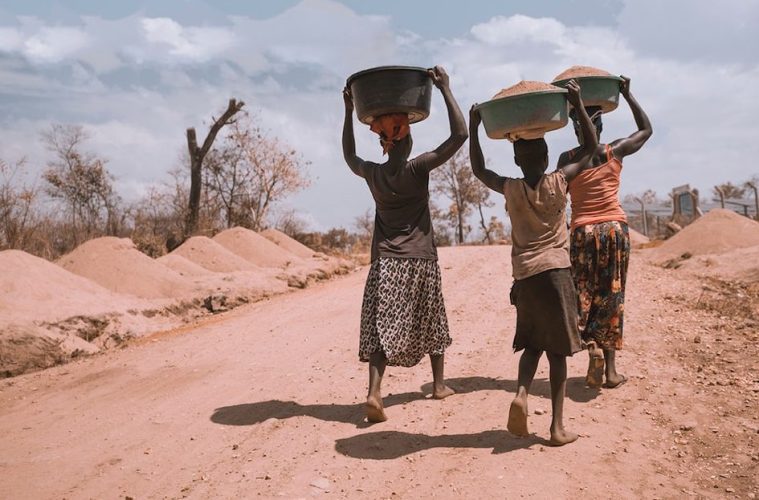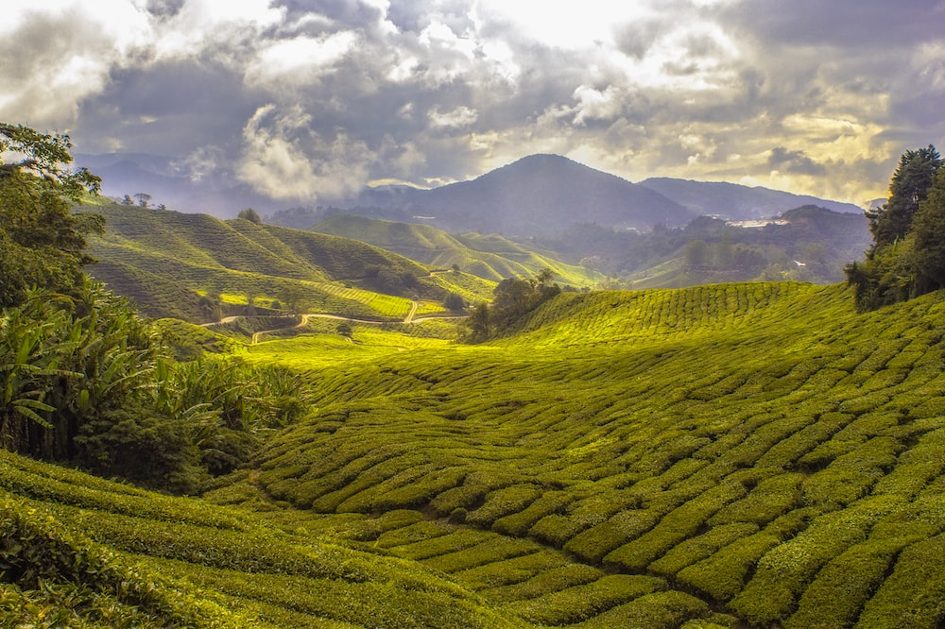On June 30th, in Rome, the Ministers of Agriculture from the African Union, their counterparts from the European Union, and representatives of civil society gathered for the Ministerial Conference on Agriculture. This series of conferences aims to organize the partnership between the two continents to address food security concerns in Africa. For this fifth edition, participants discussed four main themes: sustainable investment, research and innovation, resilience of agri-food systems, and regional trade integration. A hundred organizations took advantage of the event to launch a collective call to the States on the importance of accelerating an agroecological transition independent of private interests. This call notably includes a request for land sovereignty.
Land tenure security being implemented in various African states aims to bring more transparency to the management of arable land. However, it has a downside: the traditional allocation of land to small-scale farmers is being replaced by financial transactions that may exclude them. “In Africa, land will belong to those who buy it,” Christian Bouquet already wrote in his article published in the Bulletin de l’Association des géographes français in 2012.
This concern is expressed by the collective in its declaration “African civil society organizations and people’s movements call for food sovereignty.” The Alliance for Food Sovereignty in Africa (AFSA), the Global Convergence of Struggles for Land and Water in West Africa (CGLTE-AO), the Institute for Research and Promotion of Development Alternatives (IRPAD), the Network of Farmers’ and Agricultural Producers’ Organizations of West Africa (ROPPA), Plateforme Régionale des Organisations Paysannes d’Afrique Centrale (PROPAC), and others. There are 120 representatives of civil society joining forces to voice their demands in favor of a profitable African agri-food transition for Africans.
The recommendations of Africa’s advocates
According to this collective, the scope of reflection initiated between European and African ministerial representatives is not sufficiently favorable to the interests of the African continent. The partnership supports an agri-food transition supported by investment, innovation, and value chain creation, but industrial interests remain omnipresent.
The inclusion and defense of the interests of small-scale farmers and local communities are not sufficiently present in the debate, even though their rights are expressed in two United Nations resolutions adopted in 2007 and 2018:
– United Nations Declaration on the Rights of Indigenous Peoples (UNDRIP)
– United Nations Declaration on the Rights of Peasants and Other People Working in Rural Areas (UNDROP)
The specter of food insecurity brandished by institutional partners is a double-edged sword, as it risks relegating sustainability to second place behind productivity. However, sustainability is the only path that can lead to food sovereignty and African independence from inputs or technologies. Adopting alternative agriculture practices that are accessible to small-scale farmers and adapted to local resources would be a first step towards autonomy and self-sufficiency.
For example, local production and management of seeds, organic fertilizers, and local food products should be the priority in African national policies. This way, African populations can reclaim food supply chains.
The collective wishes to warn government representatives about the risks associated with concentration, which excludes small producers, and the control of food systems by agro-industrial companies.
Neoliberal policies have succeeded colonization, maintaining dependence on imports and debt. African nations are not in a position to undergo the transition, protect national interests, and promote their economic sovereignty. The AU-EU partnership must enable African populations to exercise their fundamental rights, acquire autonomy, and the know-how to exploit their territories and generate sufficient income.
Given the successive crises and limited resources available, African agriculture has already demonstrated its resilience. It can contribute to agricultural transition if it is not part of a policy of industrialization and agrotechnology that favors the monopoly of international groups and reinforces dependency.
In its declaration, the collective notes that the conference entitled “Resilient Food Systems and Sustainable Agri-Food Value Chains” could have been called “Achieving Food Sovereignty: Sustainable, inclusive, equitable, and resilient agricultural and food systems, and sustainable local consumption.”
Land sovereignty, a prerequisite for any sustainable transition
Preserving land sovereignty is part of the recommendations put forward by the collective in its declaration, which includes eleven proposals in favor of a new African agriculture:
- Ensure diversified and sustainable agriculture and food in EU-AU exchanges for populations;
- Respect human rights in the development of public strategies;
- Promote financing for agroecological and local projects;
- Place seed banks under the control of farmers;
- Preserve public health by favoring agricultural practices that respect health and working conditions;
- Promote locally-produced organic fertilizers;
- Maintain access to land for indigenous populations and protect their resources;
- Prioritize territorial food systems and family farming;
- Promote equality and autonomy for women and youth;
- Address the structural causes of migration and conflicts;
- Ensure policy coherence for development.
In its recommendation No. 7, the collective emphasizes that land is the primary resource for food-producing farms. Soil degradation through extractive activities or displacement of farmers are the main causes of inequalities.
Securing land rights promotes intelligent use of arable land. Farmers cultivate with greater diversity, reduce the risks associated with monoculture (such as disease and soil degradation), and reduce deforestation for agricultural purposes. Their incomes are also more stable.
However, agricultural land acquisitions funded by states and public development banks within the framework of large projects contradict the aforementioned land security. Support should be provided for communal agricultural land, in line with the Voluntary Guidelines on the Responsible Governance of Tenure of Land, Fisheries, and Forests in the Context of National Food Security (FAO, 2012) and Decision 26/COP14 (ICCD, 2019).
Respecting the Declaration on the Rights of Indigenous Peoples is also essential. States should inform and consult local populations regarding any legislative or administrative measures that may affect them, in order to obtain their prior consent or address their concerns in case of non-compliance.
The collective also calls for the revision of Article 6 of the Paris Agreement, which, in their view, facilitates the exploitation of African land in favor of large corporate carbon offset campaigns at the expense of local populations.
There can be no inclusive agriculture without inclusive land! Agricultural land remains a prerequisite for any viable agricultural policy. Its management, fertilization, and diversity give it its richness and productive capacity. Food sovereignty stems from this, beyond the market analysis made by EU-AU negotiators.
The question of seeds then arises, as African agriculture must regain leadership in order to maintain crops that sustainably preserve its soil and interests, rather than meet the demands of international markets.
There can be no sovereignty and self-sufficiency without diversified agricultural production.
The current agricultural practice is by no means sustainable. Yassia Kindo, Permanent Secretary of the Coordination of Agricultural Sector Policies in Burkina Faso (CC-PSA), regrets the agricultural choices made over several decades that lead to an unsustainable agriculture, as reflected in the following figures:
- 4,100 tons of consumed pesticides;
- 11 million liters of herbicides poured;
- Thousands of hectares of lost land.
Burkina Faso has already embarked on a four-year agroecology strategy. By 2027, one-third of Burkina Faso’s agricultural land should benefit from ecological practices, and a national seed system will promote local seeds.
Arable land, along with water resources, plays a central role in achieving the “zero hunger” goals.
At the FAO Conference, held on July 2nd, Tharman Shanmugaratnam, the Singaporean minister, emphasized that beyond food insecurity, states face a broader challenge of ecological insecurity.
Sources : Hic-net.org, Courrier International, Sidwaya, PAM






